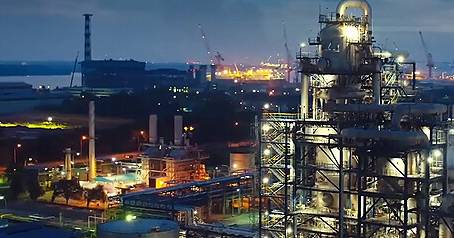дец . 21, 2024 07:55 Back to list
polypropylene panel
Understanding Polypropylene Panels A Versatile Solution for Various Applications
Polypropylene panels have emerged as a highly versatile material in numerous industries, from construction and automotive to packaging and consumer goods. Known for their strength, lightweight nature, and resistance to chemicals, these panels offer a unique blend of properties that make them an appealing choice for many applications. In this article, we will explore the characteristics, advantages, and potential applications of polypropylene panels, providing insight into why they are becoming increasingly popular.
What are Polypropylene Panels?
Polypropylene panels are made from polypropylene, a thermoplastic polymer known for its durability and resilience. This material is produced through the polymerization of propylene gas, resulting in a strong and flexible structure. The panels can be manufactured in various forms, including sheets, rolls, and custom shapes, which allows for a wide range of applications. They can also be produced in various colors, making them suitable for aesthetic considerations as well.
Key Characteristics
One of the most notable characteristics of polypropylene panels is their lightweight nature. This property makes them easy to handle and install, reducing labor costs and improving efficiency. Furthermore, polypropylene is inherently resistant to moisture and many chemicals, which means that it does not easily corrode or degrade in challenging environments.
Durability is another hallmark of polypropylene panels. These materials have a high impact resistance, which makes them ideal for applications where they may experience mechanical stress. Additionally, polypropylene panels are UV resistant, meaning they can withstand exposure to sunlight without breaking down or losing their structural integrity.
Advantages of Polypropylene Panels
1. Cost-Effectiveness When compared to other materials like metal or wood, polypropylene panels offer a competitive price point. Their lightweight nature reduces shipping costs, and their low maintenance requirements lead to long-term savings in operational expenses.
polypropylene panel

2. Eco-Friendliness Polypropylene is a recyclable material, making it an environmentally responsible choice. With the growing emphasis on sustainability, the use of recyclable materials in manufacturing helps reduce overall waste and supports green practices.
3. Versatility These panels can be used in a variety of applications, including wall partitions, ceilings, and protective barriers in construction projects. They are also common in the automotive sector, where they can be utilized in the manufacturing of interior components. Additionally, polypropylene panels are often found in laboratories and cleanrooms, serving as wipeable surfaces that maintain hygiene.
4. Safety Because polypropylene panels are flame-retardant, they can help enhance safety in environments where fire resistance is a priority. Their non-toxic composition ensures that they do not release harmful chemicals into the environment, making them a safe choice for various applications, including food packaging.
Applications of Polypropylene Panels
Polypropylene panels are employed in a wide array of sectors. In the construction industry, they are often used for insulation, wall coverings, and flooring, thanks to their durability and moisture resistance. In the automotive industry, they are utilized for dashboards, interior panels, and other components due to their lightweight nature and ability to absorb impact.
The packaging sector also benefits from polypropylene panels, which are used to create sturdy, lightweight containers and boxes that protect goods during transportation. Additionally, in medical fields, polypropylene panels are utilized for surfaces that require frequent cleaning and sterilization, ensuring that hygiene standards are maintained.
Conclusion
Polypropylene panels are a multi-functional material that provides an array of benefits across several industries. Their combination of durability, lightweight properties, and chemical resistance makes them an ideal choice for various applications. As industries continue to prioritize sustainability and efficiency, the demand for polypropylene panels is likely to increase, paving the way for innovative uses in both traditional and emerging markets. Whether for construction, automotive, packaging, or healthcare, polypropylene panels are proving to be a highly valuable solution that meets the modern demands of safety, functionality, and environmental responsibility.
-
Durable PP Rigid Sheet: Lightweight, Chemical Resistant Solutions
NewsAug.21,2025
-
PVC Grey Sheet for Extraction: Chemical Resistant & Durable
NewsAug.19,2025
-
Durable PVC Pipe Fittings for Plumbing & Irrigation Needs
NewsAug.18,2025
-
HDPE Steel Belt Reinforced Spiral Corrugated Pipe | High Strength
NewsAug.17,2025
-
HDPE Pipe Fittings: Durable, Leak-Proof Solutions
NewsAug.16,2025
-
Premium CPVC Sheet: High-Temp & Chemical Resistant Solutions
NewsAug.15,2025

